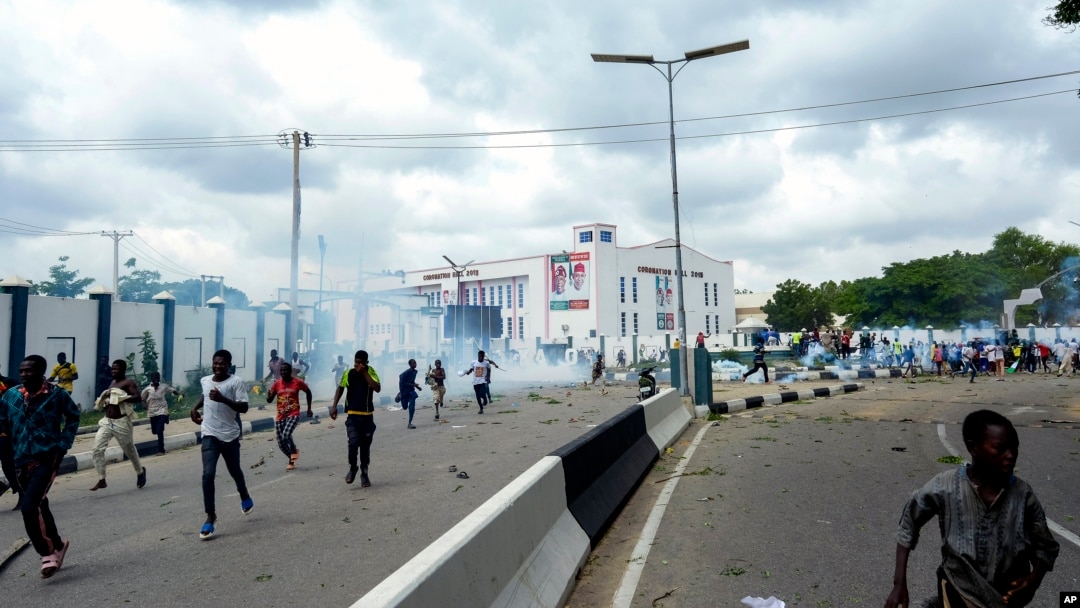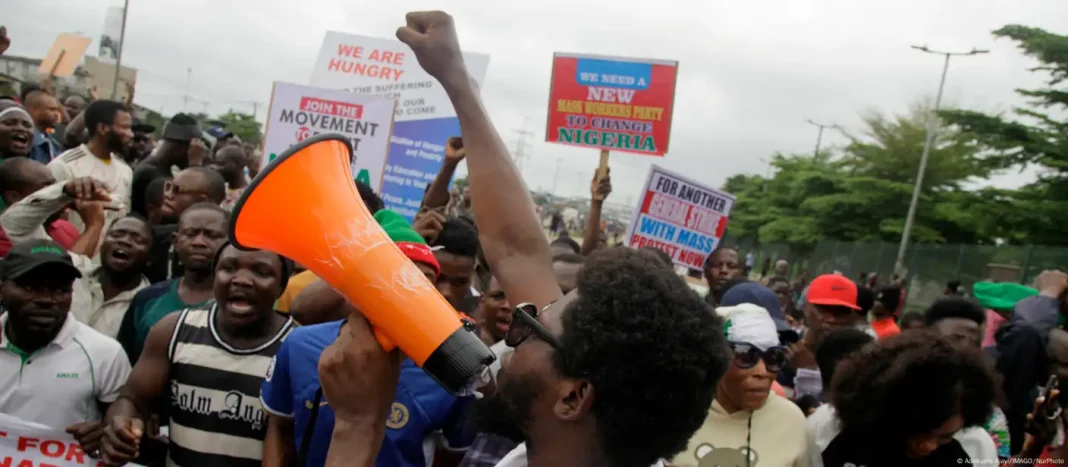Public outcry has erupted across Nigeria following news that 29 children, aged 14 to 17, face the death penalty after participating in protests against the ongoing cost-of-living crisis. They are among 76 people charged on Friday with treason, public disturbance, destruction of property, and incitement of a military coup.
The protests began in August, when thousands of Nigerians took to the streets to voice anger over soaring living costs, driven by the end of fuel subsidies and the local currency’s devaluation. These reforms, spearheaded by President Bola Tinubu, have sparked inflation, significantly impacting everyday Nigerians. Despite the backlash, Tinubu has defended the changes, calling them necessary for the country’s economic survival.
The plight of the detained children has particularly captured national attention, especially after four of them collapsed from exhaustion in court. They have reportedly been held in police custody since August, and their lawyers state they were granted bail, with a trial date set for January.
Human rights groups and activists have strongly condemned the government’s response to the protests, denouncing the charges as severe and calling for the immediate release of the minors. Amnesty International reported that at least 13 protesters were killed by security forces during August clashes, raising further concerns about police conduct.
Nigeria’s use of the death penalty has been a contentious issue; although capital punishment was introduced in the 1970s, no executions have occurred since 2016. However, the potential execution of minors has provoked an especially strong backlash, with legal experts and rights organizations warning that it could breach both Nigerian and international laws.
The case has intensified public scrutiny on Nigeria’s justice system, sparking a larger debate on youth involvement in civic activism and the limits of government control in times of economic strain. The outcome of this case may mark a critical turning point in Nigeria’s approach to both economic reform and public dissent.



